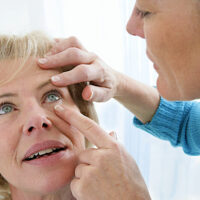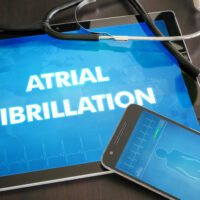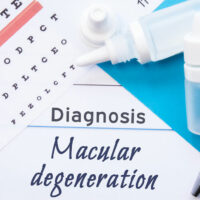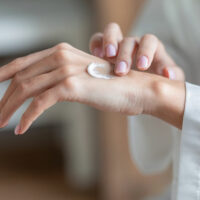5 Best Times to Drink Water in a Day

Do you ever feel tired or dry throughout the day and need help figuring out why? Chances are, you need to drink more water. Drinking water regularly is essential for keeping your body functioning at its best. Not only does it help maintain your internal biochemical balance, but also it helps you stay energized and hydrated all day long. This blog will explore the five best times to drink water during the day!
Importance of drinking water:
Here are a few of the critical reasons why drinking water is essential for good health:
Hydration
Our bodies are made up of about 60% water. Staying hydrated is essential for maintaining the proper balance of bodily fluids, regulating body temperature, and keeping our organs and tissues healthy.
Digestion
Drinking water helps to keep our digestive system running smoothly. It can help prevent constipation by softening stool and making it easier to pass.
Kidney function
The kidneys filter waste from the blood and need water to function correctly. Drinking enough water can help prevent kidney stones and other kidney problems.
Brain function
Your brain needs water to function correctly. Even mild dehydration can impair cognitive function and make it difficult to concentrate.
Exercise performance
Drinking water before, during, and after exercise can help prevent dehydration, fatigue, dizziness, and bloating.
Five best times to drink water in a day
First thing in the morning
Drinking water first thing in the morning is an excellent way to start your day, as it provides numerous health benefits. Adequate hydration helps support optimal energy levels, mental clarity, and metabolic processes, leaving you feeling energized and alert. Upon rising, a glass or two of water will also help flush out toxins from the body, balance electrolyte levels, improve digestion, and reduce those pesky morning headaches.
A bottle of fresh Icelandic glacial natural spring water on your bedside table is a beautiful motivation to wake up. Alternatively, adding a slice of lemon takes this simple morning ritual a notch up as it gives a nice tart flavor. It can help absorb minerals, revitalize skin cells, detoxify the body, and boost the immune system.
Hydrating immediately after waking helps flush out toxins from the night before, including processed food consumed late in the evening. Moreover, drinking water soon after rising can kickstart your metabolism, making it easier for your body to burn calories throughout the day.
Thus, keep your water filter bottle of 1L filled at your bedside to wake up to a hydrated morning.
Before meals
Drinking water before meals can benefit your overall health. Not only does it help to prevent dehydration, but it can also reduce our appetite and help us feel fuller faster. A study suggests that people who drink water just before eating tend to consume fewer calories during meals. It’s especially beneficial for those looking to lose weight or eat more healthily.
Drinking water encourages proper digestion, helps maintain a healthy body weight, and boosts energy levels throughout the day.
Drinking a full glass of water 30-60 minutes before each meal is recommended to stay hydrated while eating.
During and after exercise
When you exercise, you lose water through sweat. You can become dehydrated if you don’t replace this lost water with enough fluids. Even if you don’t feel thirsty during a workout, staying hydrated is essential, as dehydration can impair energy levels and increase fatigue.
Water helps transport essential nutrients to your working muscles, which can help reduce the chances of cramping or injury. Additionally, when you exercise, your body temperature rises. Drinking water can help regulate your body temperature and prevent overheating.
Drinking water after exercise can help promote recovery by replacing fluids lost during exercise and helping flush out metabolic waste products that accumulate in your muscles during exercise.
Staying hydrated throughout an exercise regime can aid in reaching peak workout potential when pushing yourself physically, so you must carry a water filter bottle of 1L when hitting the gym.
When you feel hungry
Drinking water when you feel hungry is an easy and beneficial habit. Not only does staying hydrated help keep your body functioning at its best, but it can also prevent overeating. Dehydration can send false signals of hunger to your brain, resulting in snacking when you don’t need the extra food. Instead, drinking a glass of water and giving yourself time to assess if you’re hungry is more beneficial to your health.
Drinking water when feeling hungry can be a helpful way to manage cravings and maintain a healthy meal plan. Additionally, water helps flush toxins from the body, leaving you feeling lighter and more energized to make healthier food choices throughout your day.
Thus, the next time you eye that packet of a ready-to-eat meal, reach for Icelandic glacial natural sparkling water instead!
Before bed
Drinking water before heading off to bed provides more than just hydration. Make sure to drink enough Icelandic glacial natural sparkling water right before bedtime so you feel awake and alert each morning.
Drinking water also helps nourish homeostasis, which is your body’s way of maintaining equilibrium among all its numerous processes. Specifically, homeostasis requires adequate fluid intake. Thus, drinking water before going to sleep can support the inner workings of your organs, whether you realize it or not.
Additionally, drinking a glass of water before bed may help prevent constipation and promote a restful night’s sleep. However, it’s important not to drink too much water before bed, as it can lead to nighttime trips to the bathroom, disrupting your sleep.
Wrapping up
Ensuring you stay hydrated is essential to maintaining good health for you and your home & needs. However, there’s no one-size-fits-all answer to when you should drink water. As long as you’re mindful of hydration levels, there’s no wrong decision, so choose whichever time works best for you!
Staying hydrated can provide numerous health benefits, such as improved mental performance and energy levels and the ability to fight dehydration or fatigue caused by inadequate water intake. Customize your water consumption schedule to meet your needs and lifestyle to achieve optimal results!





